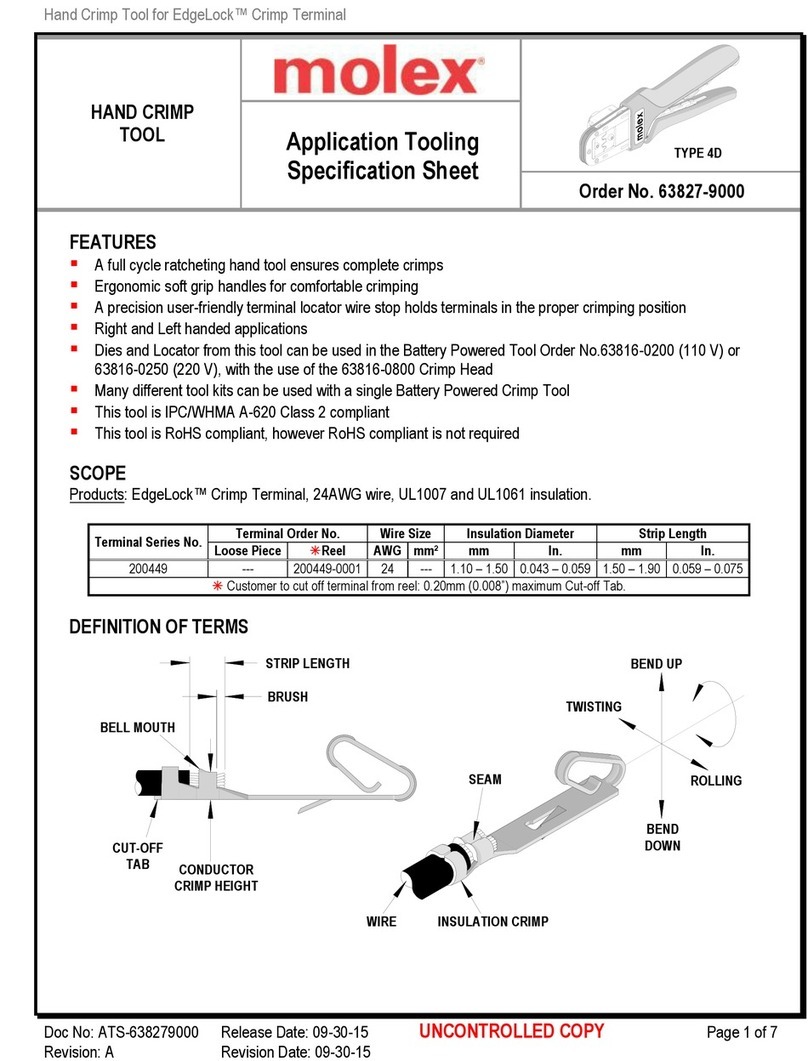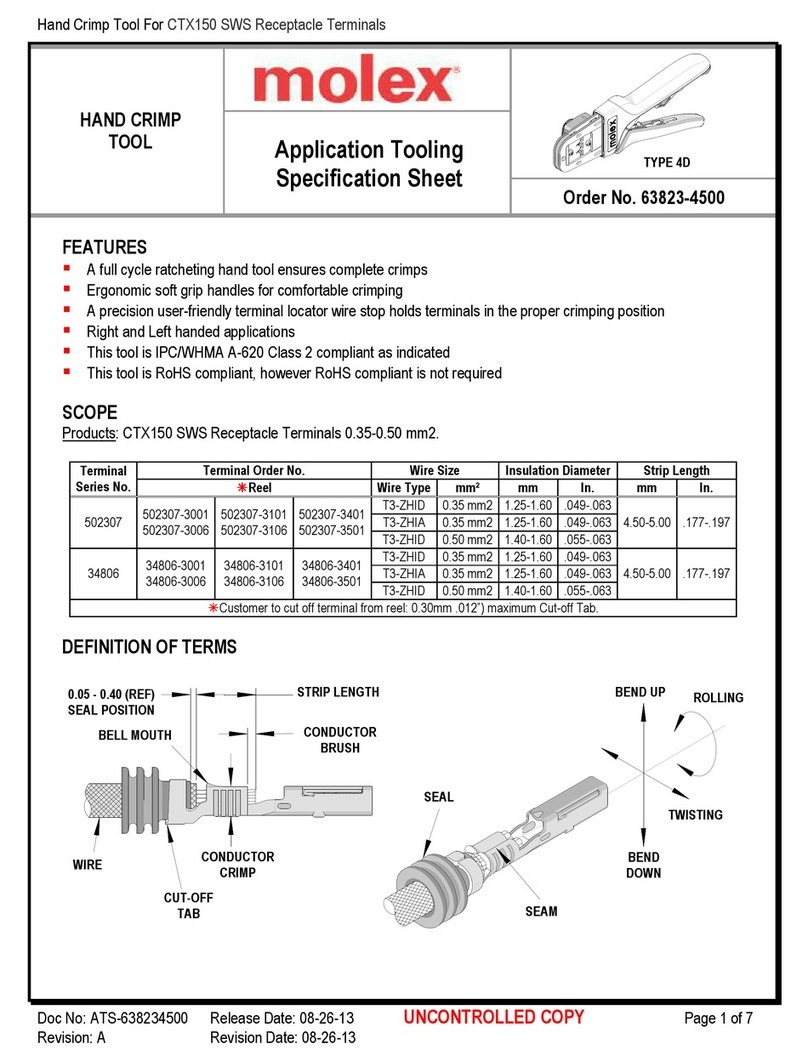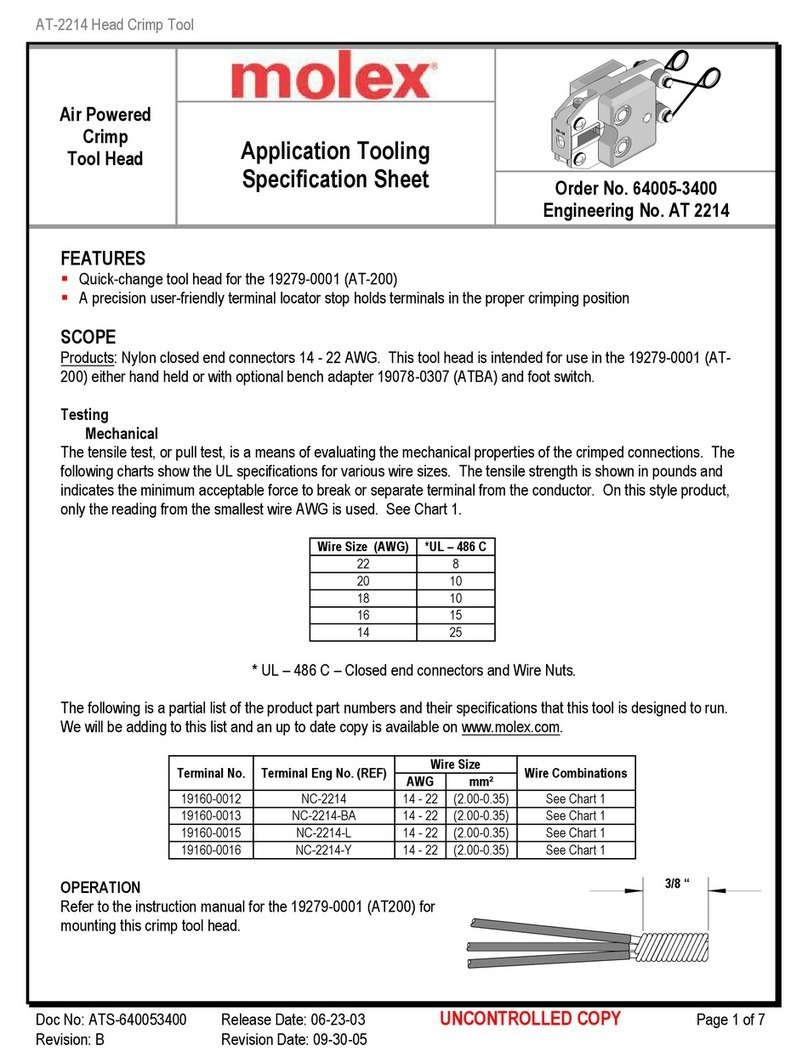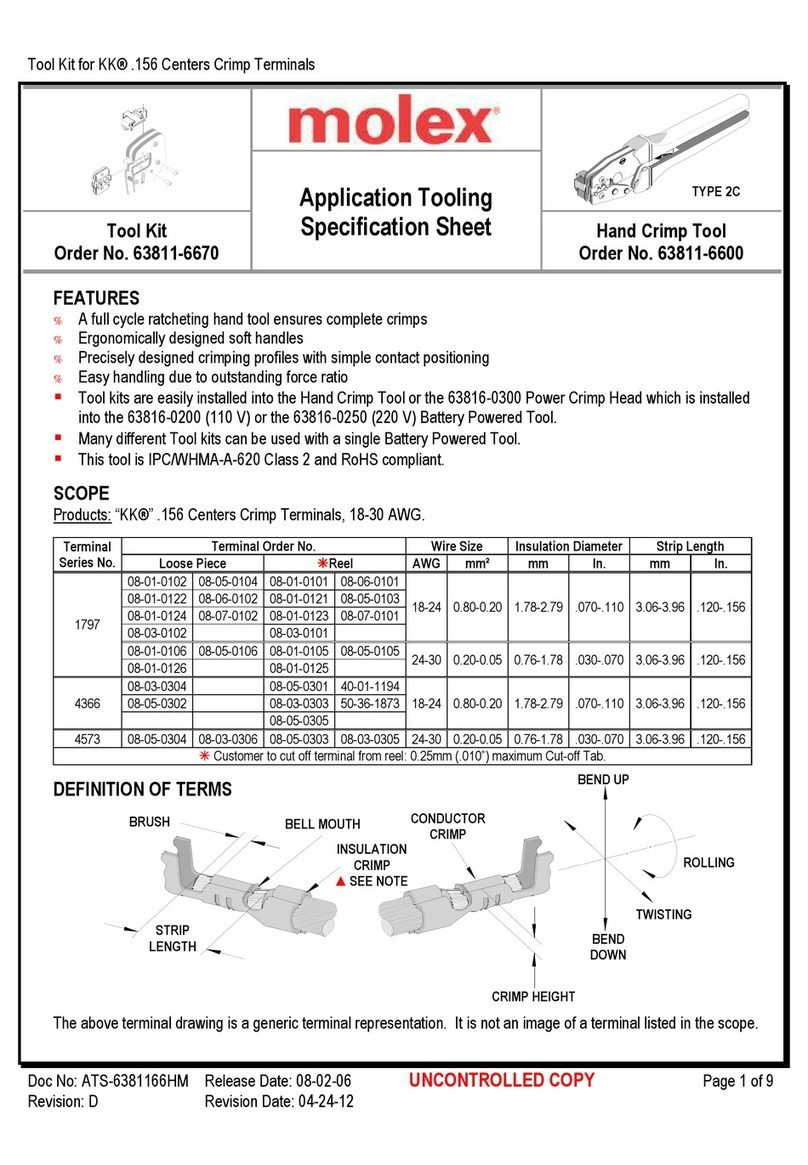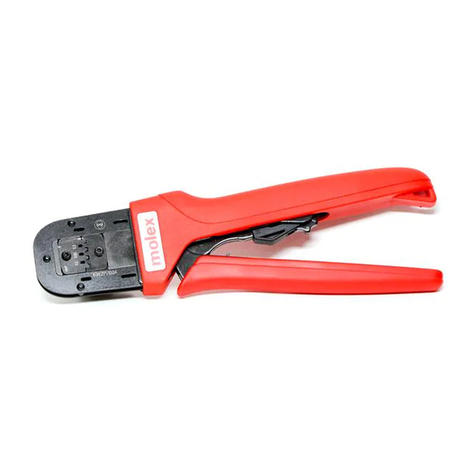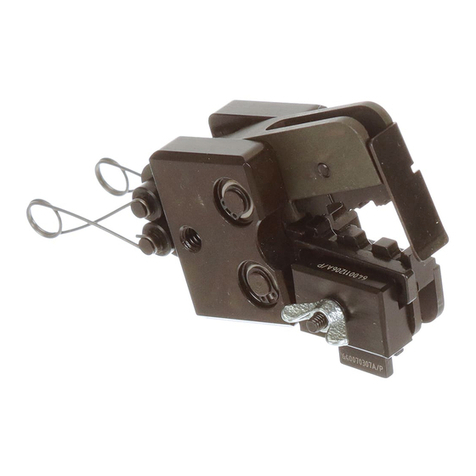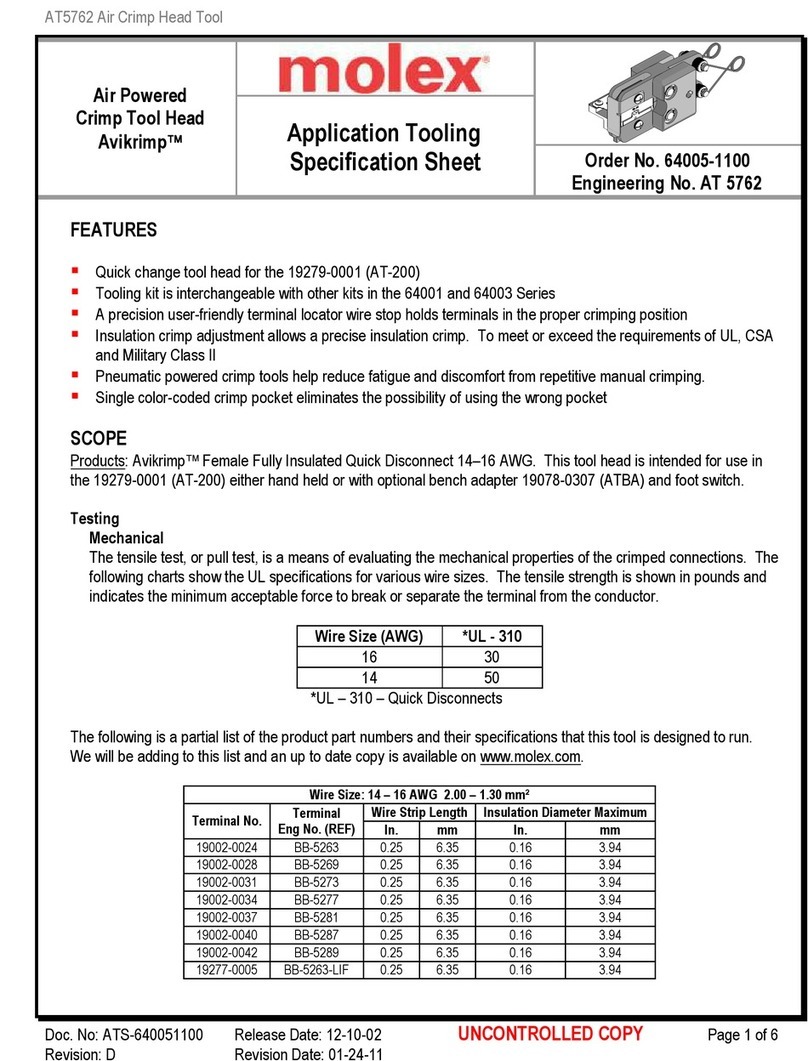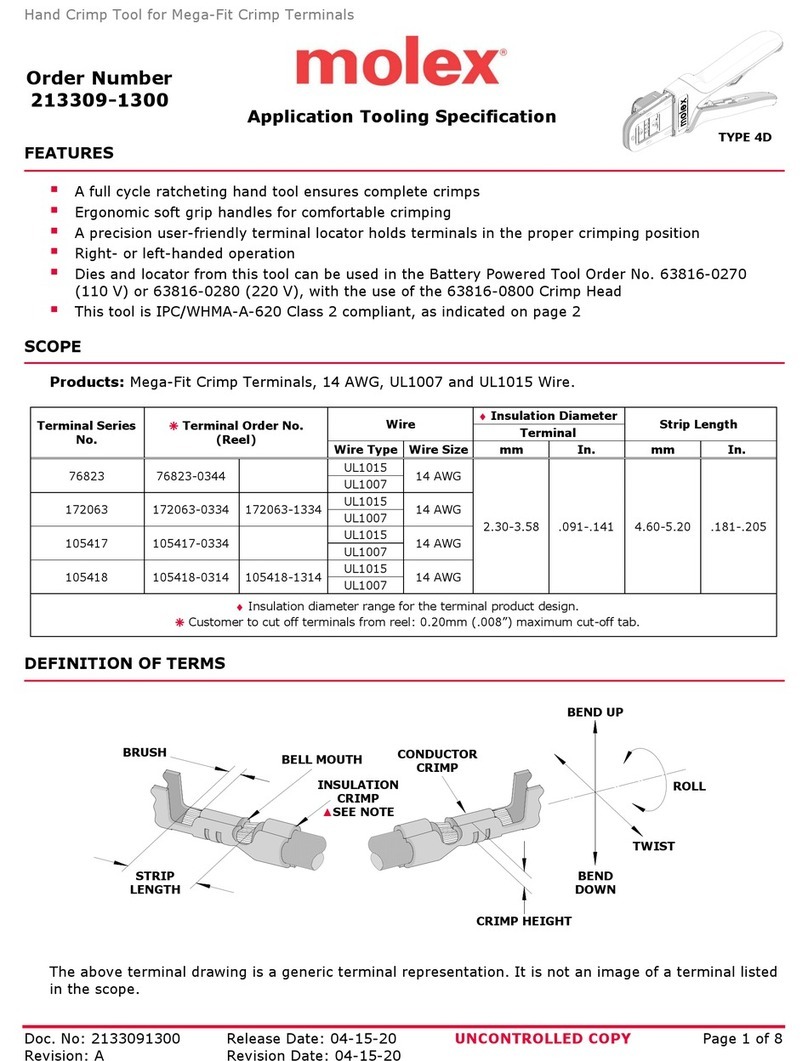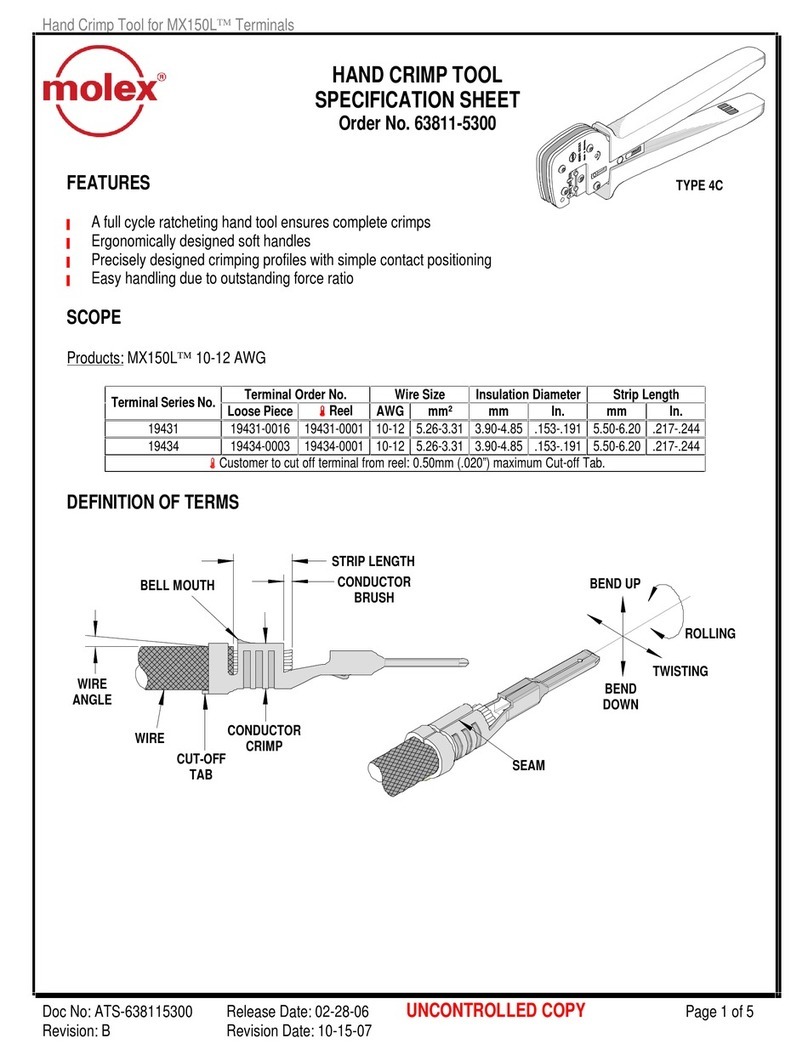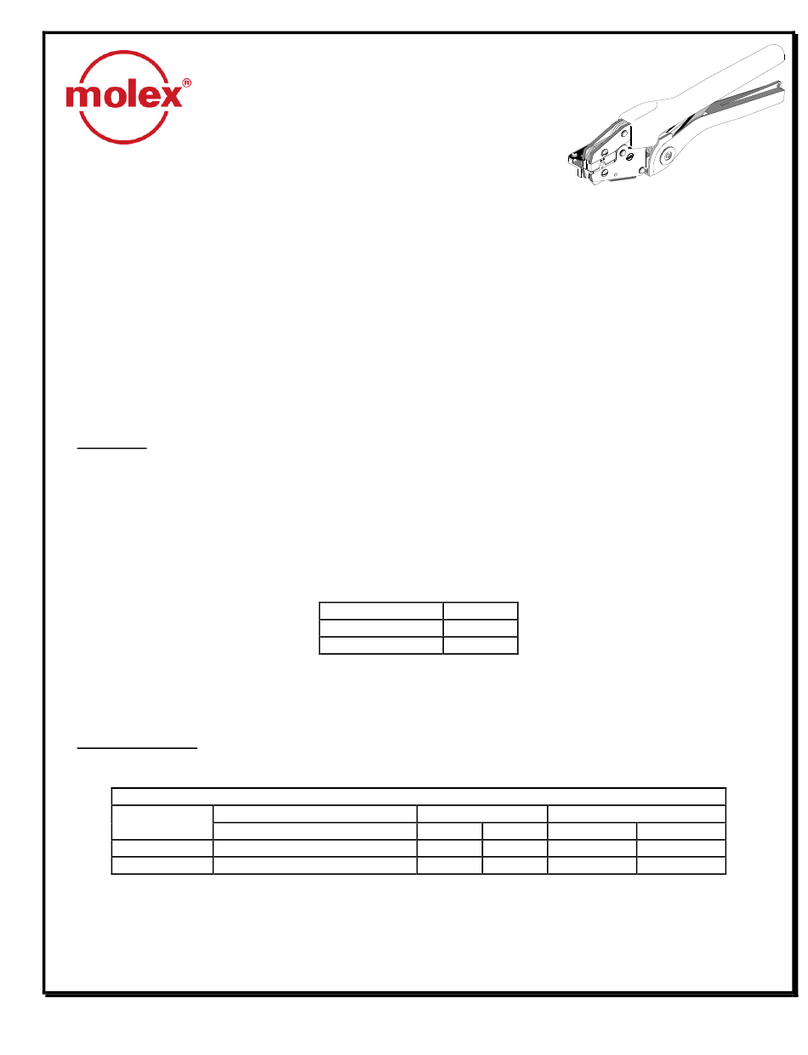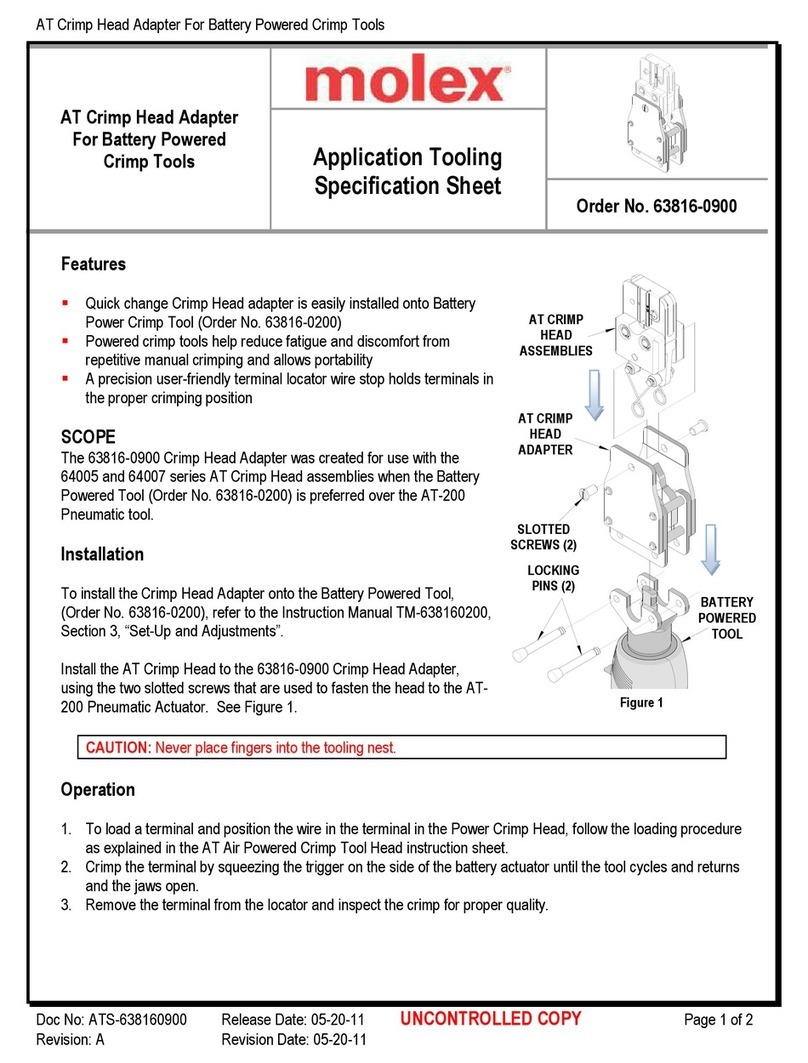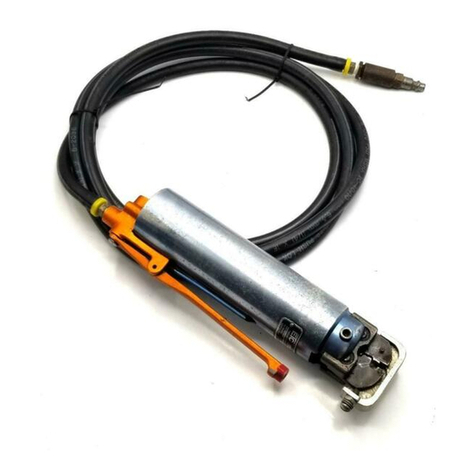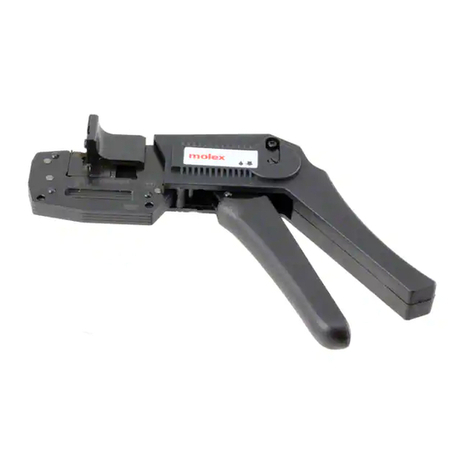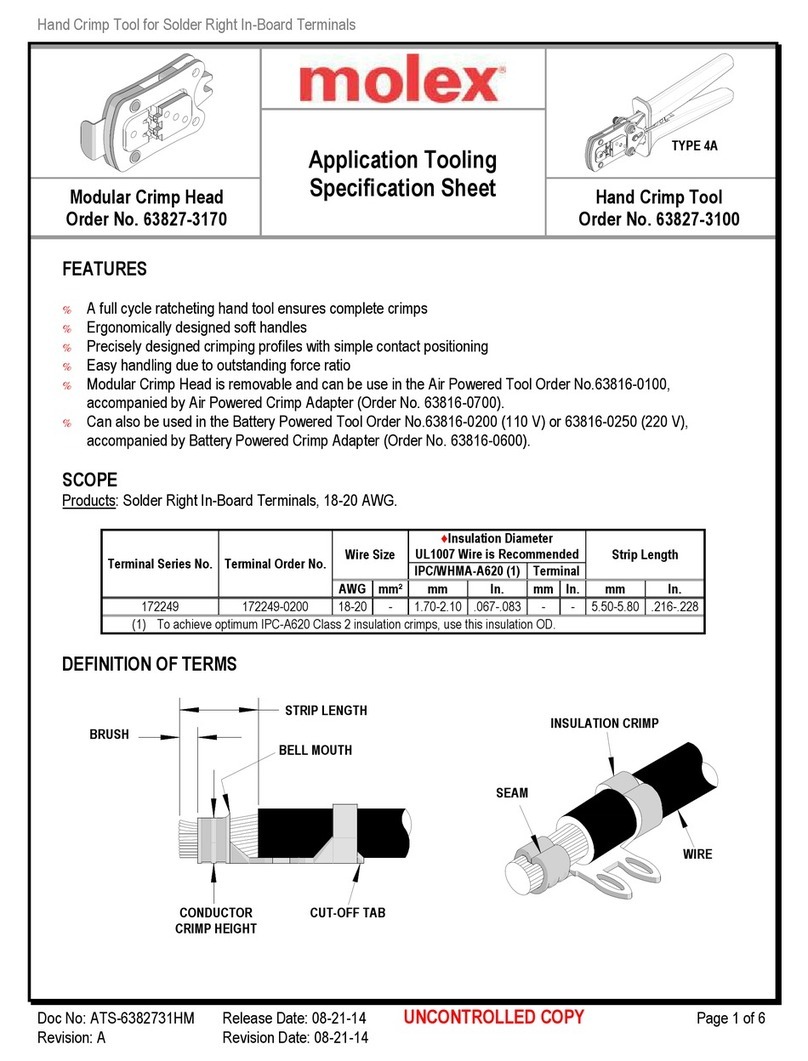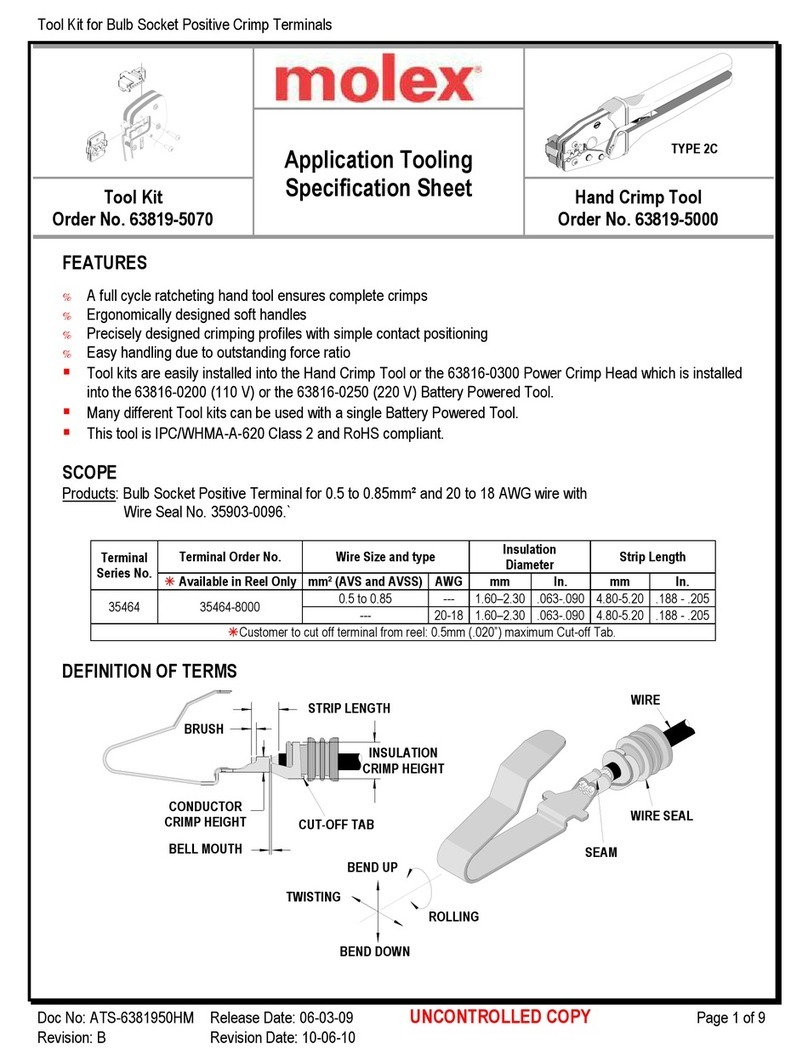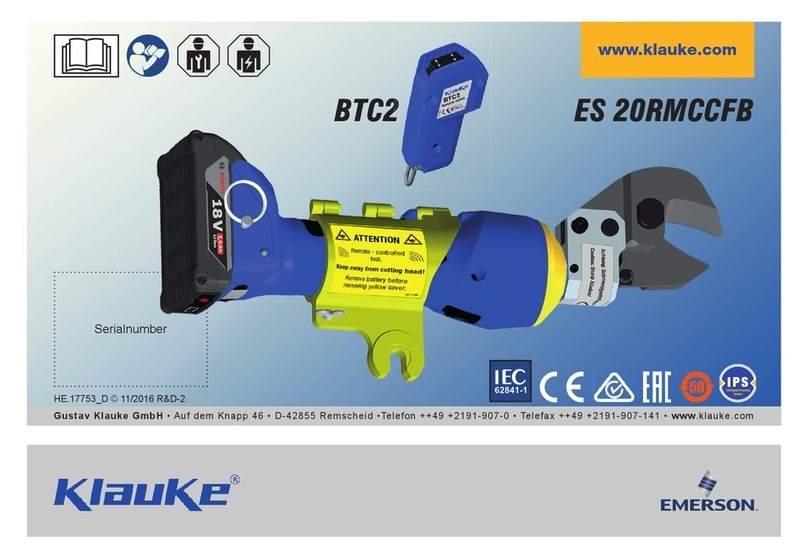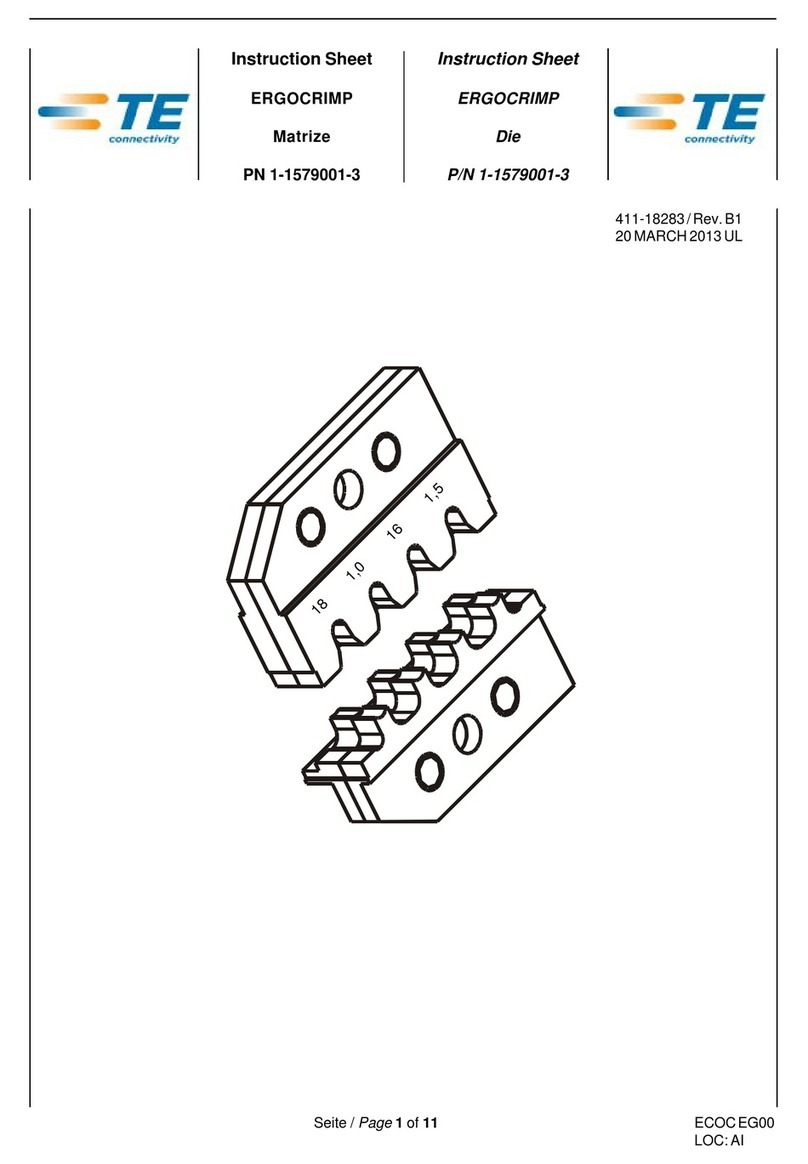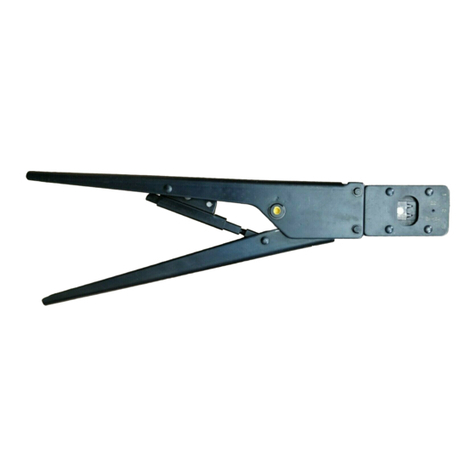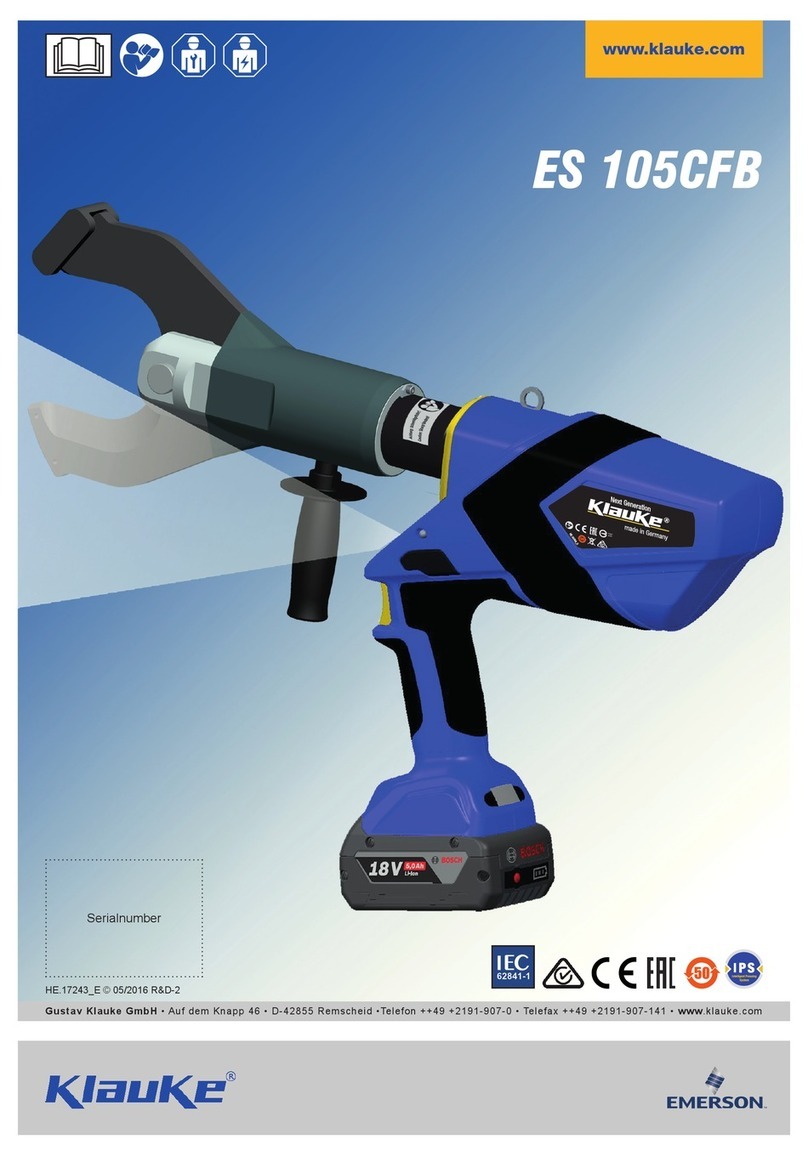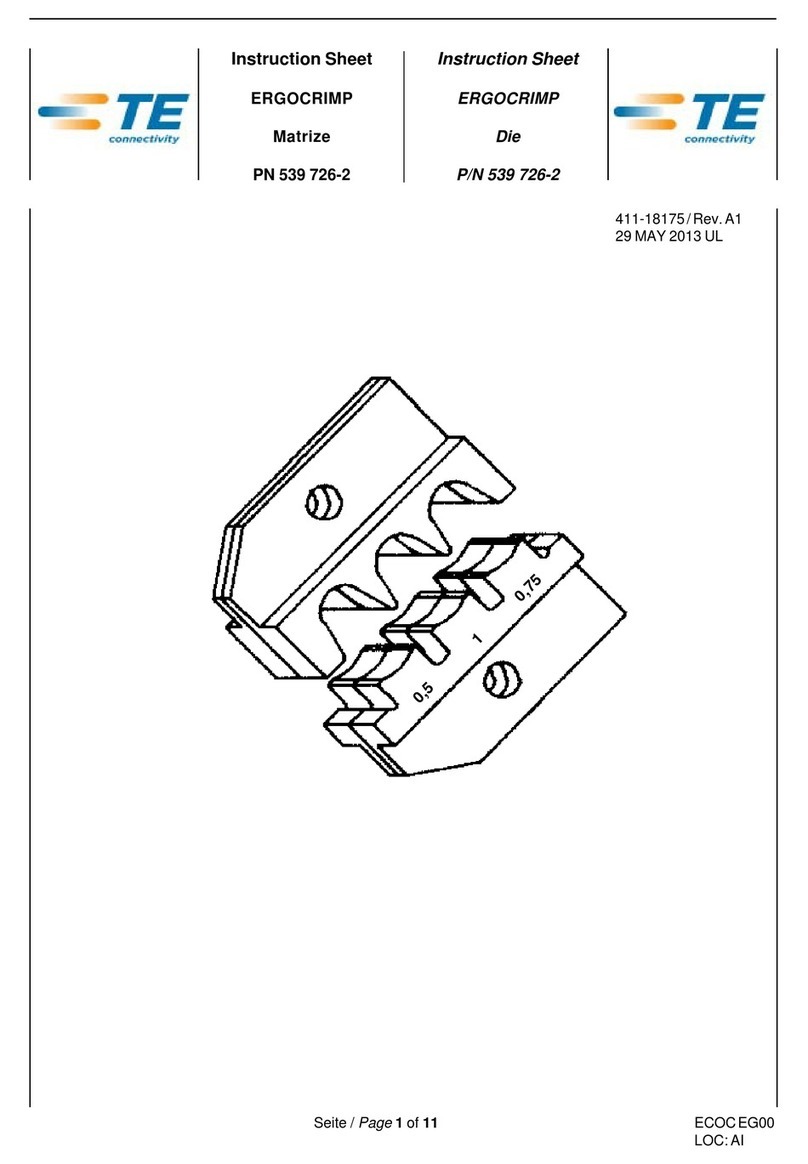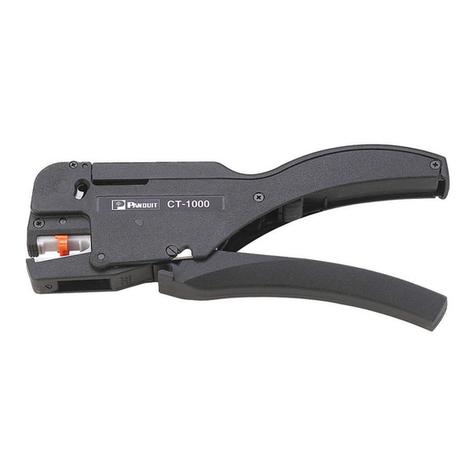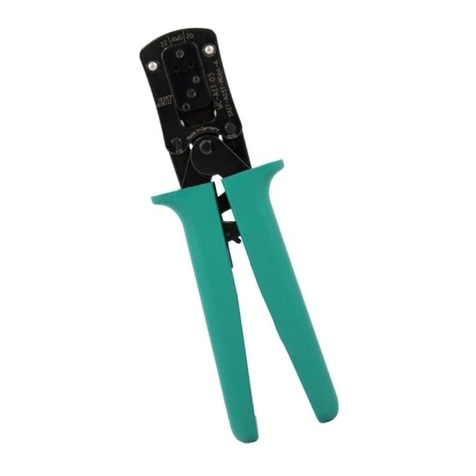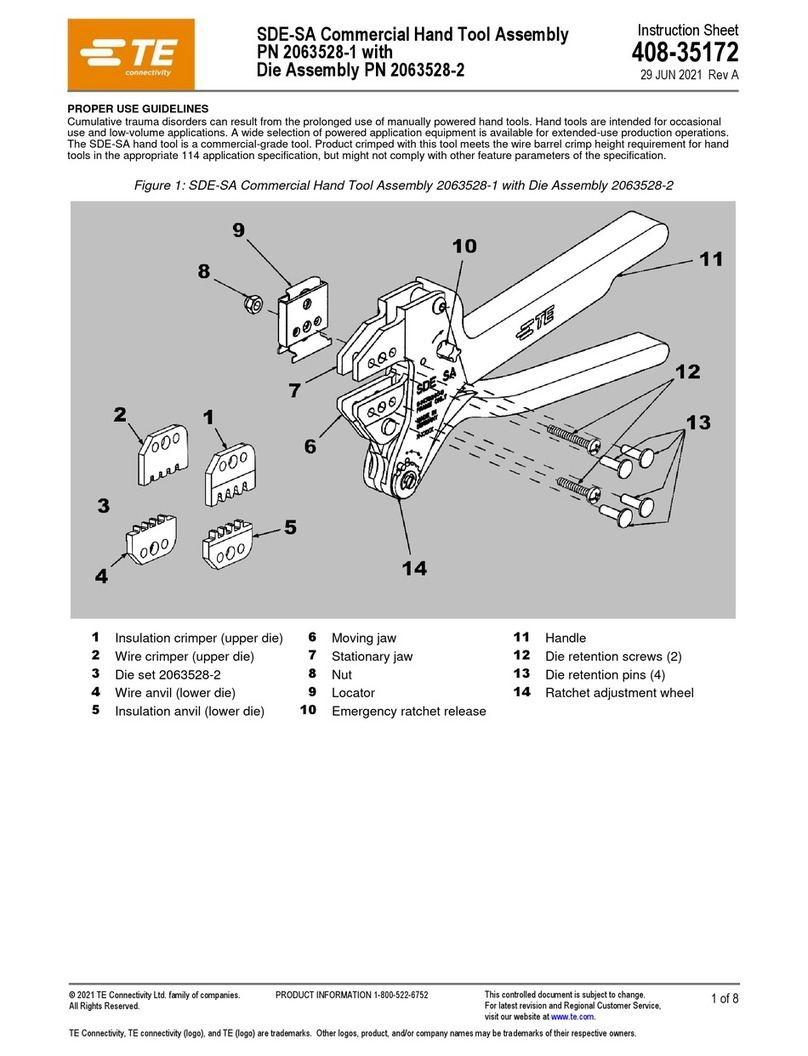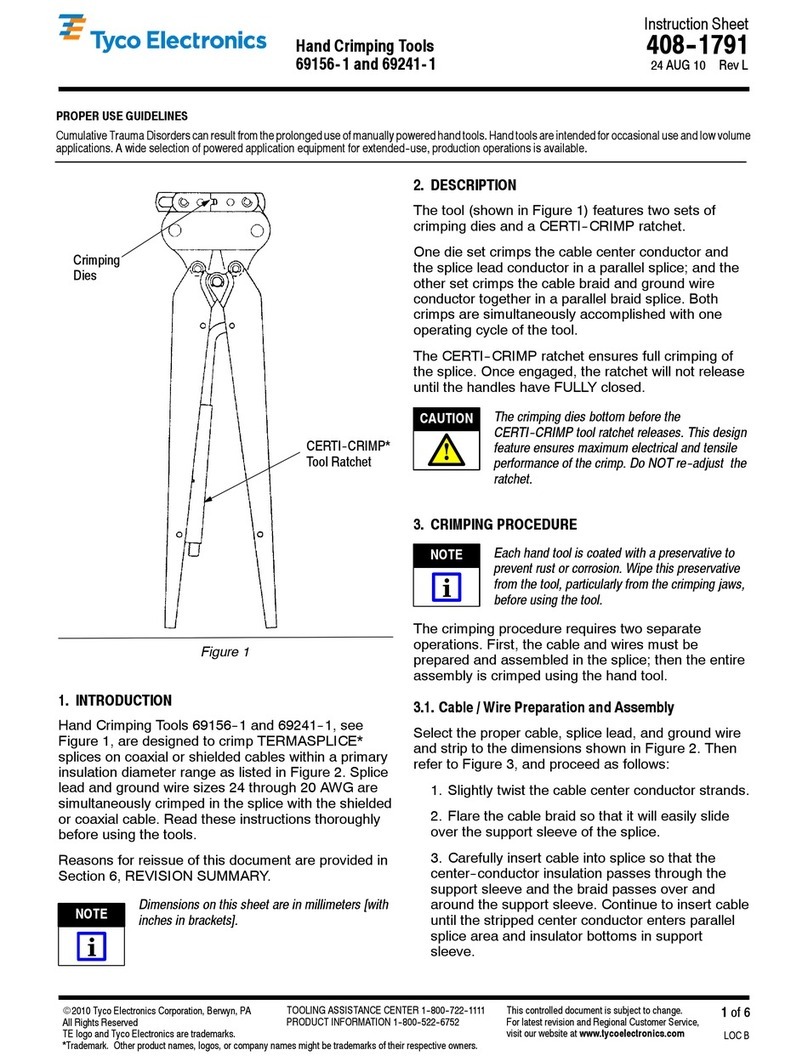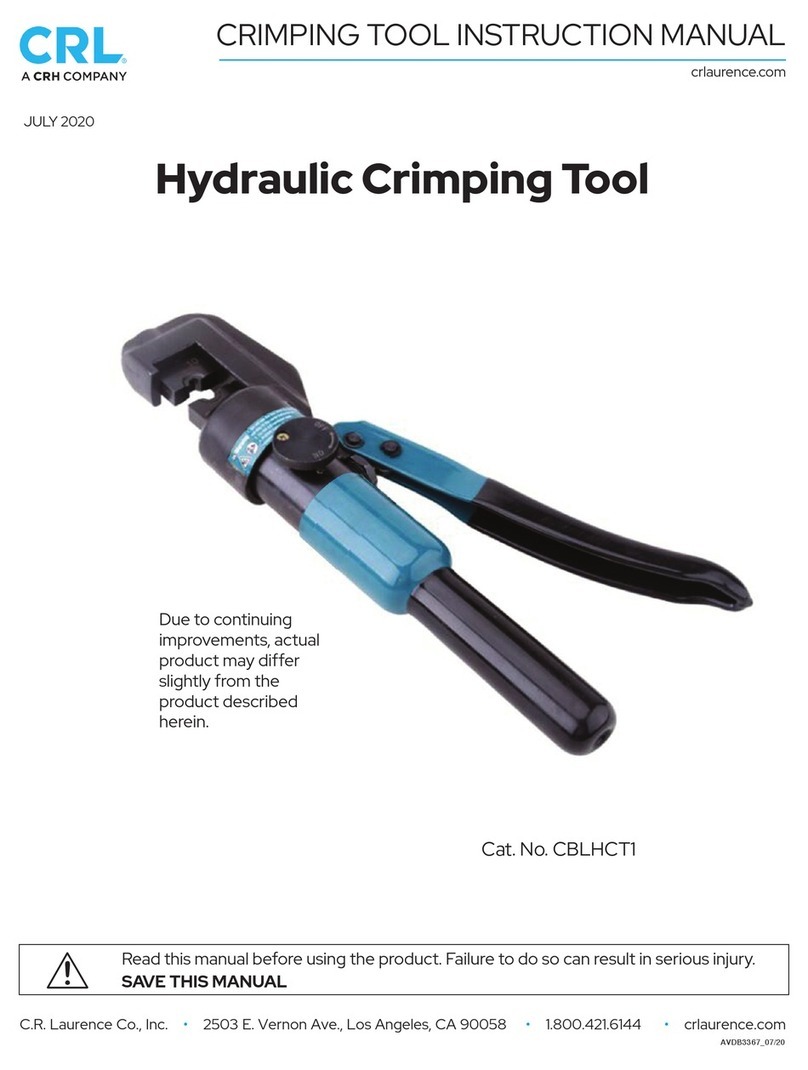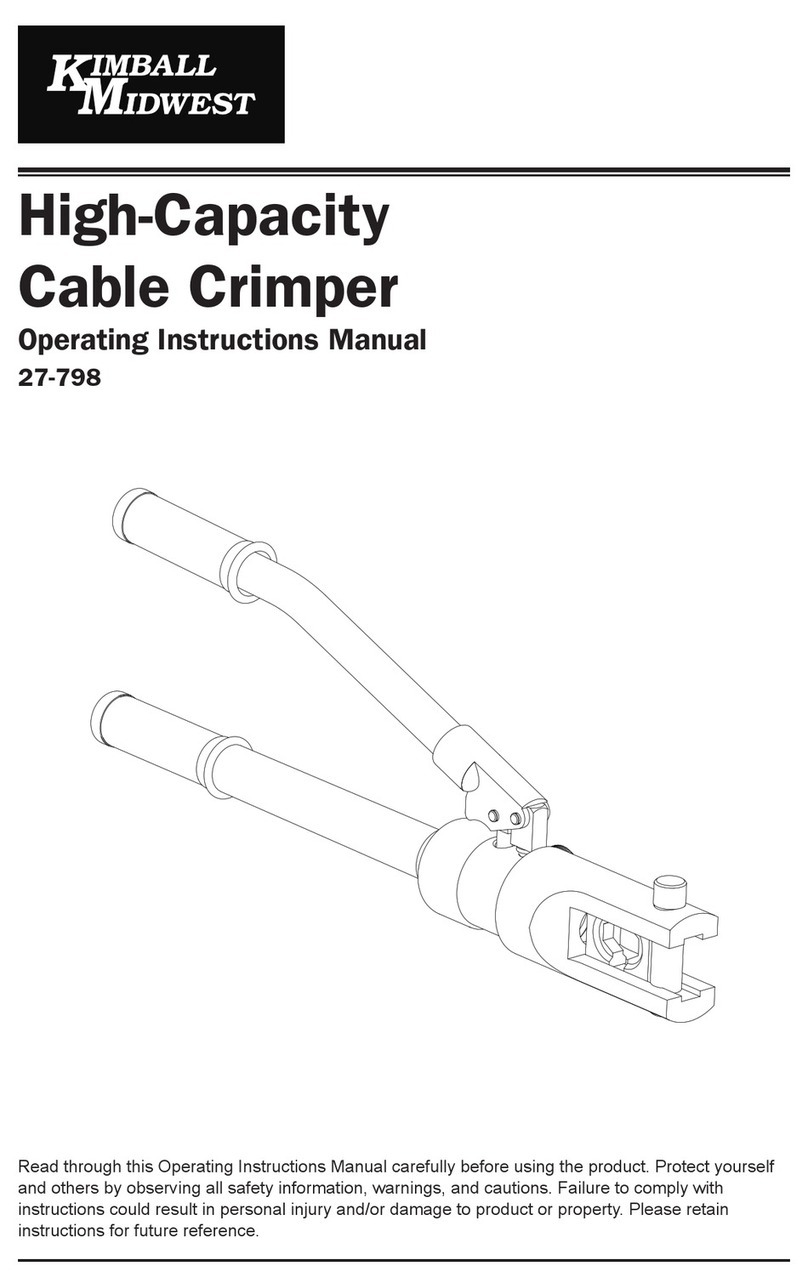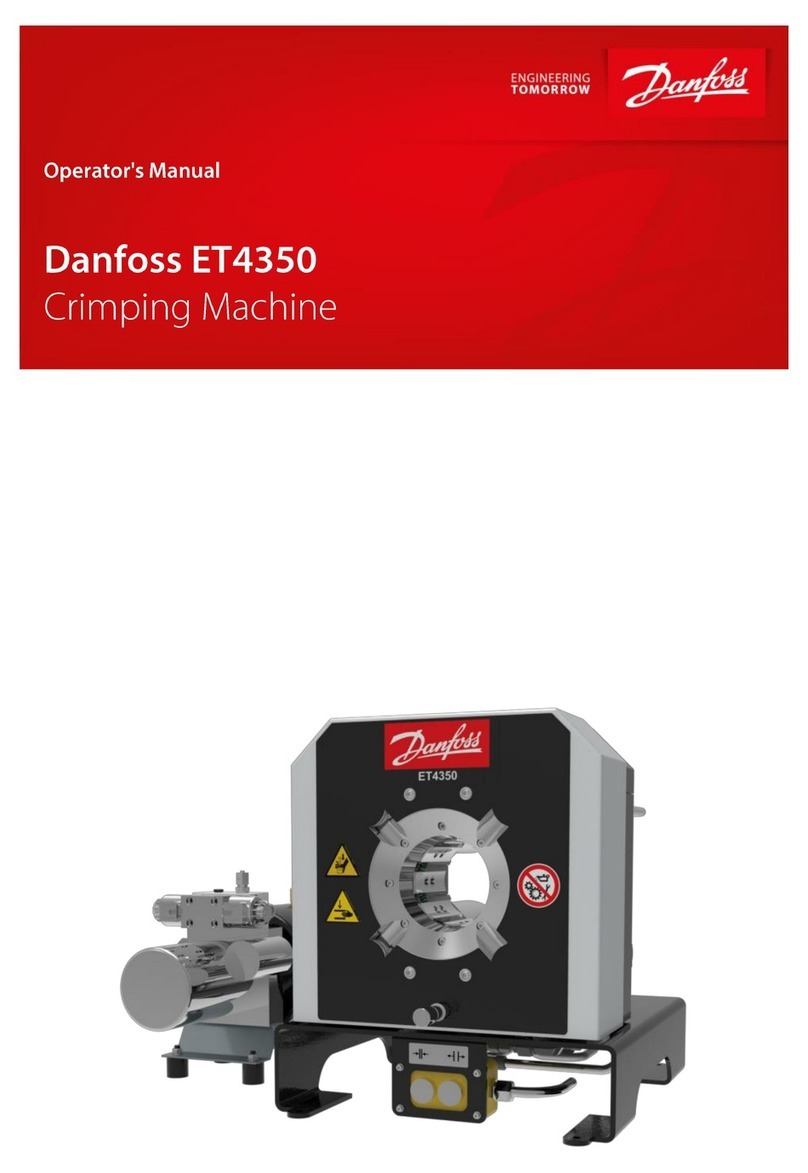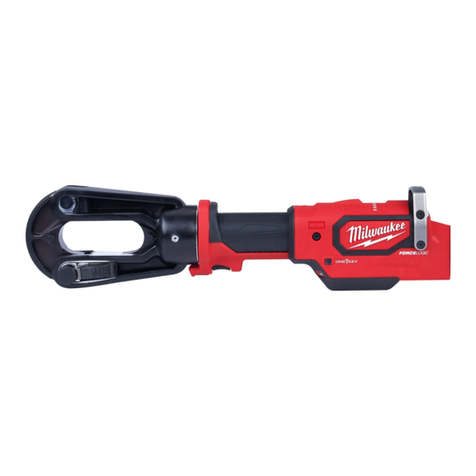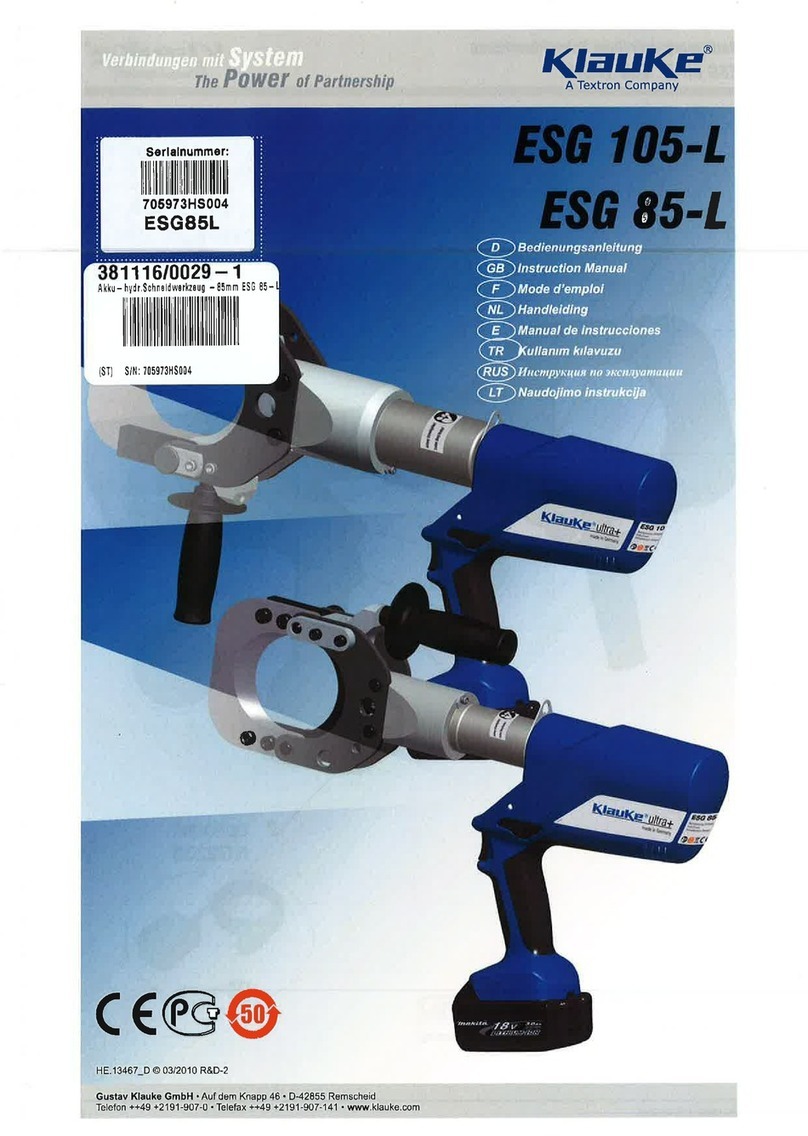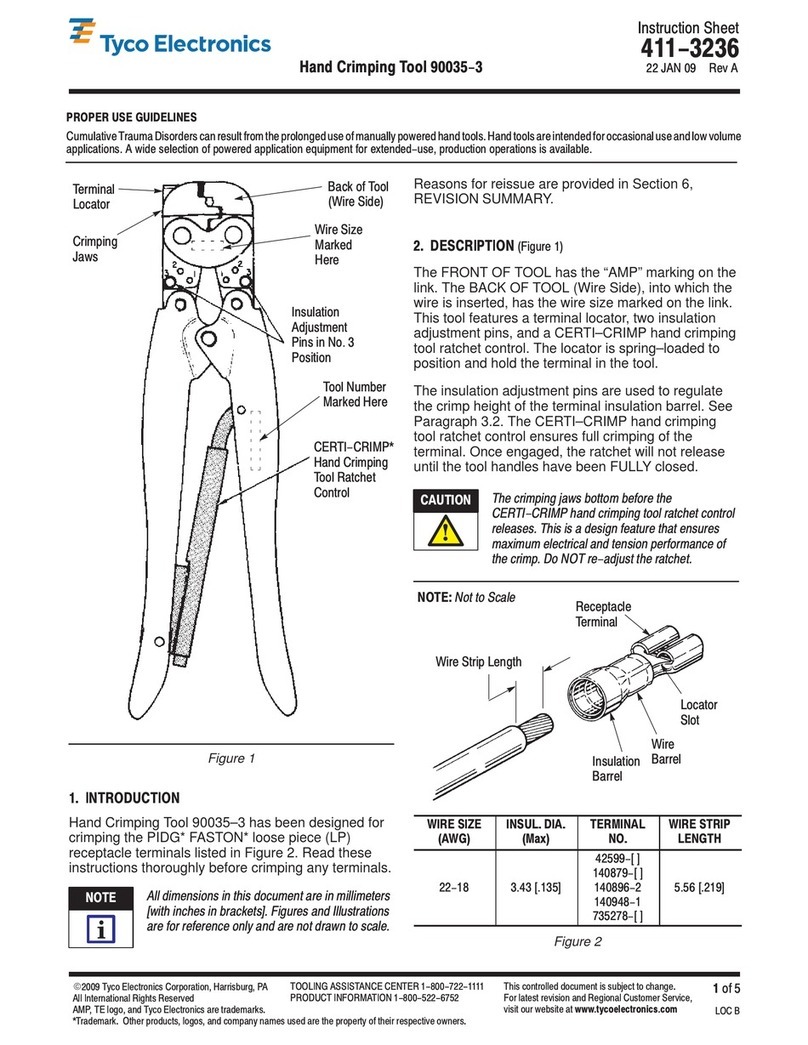
Hand Crimp Tool For Low Force Micro-Fit 3.0™ Crimp Terminals
Doc No: ATS- 38192900 Release Date: 12-10-08 UNCONTROLLED COPY Page 5 of 7
Revision: B Revision Date: 09-22-10
Figure 12
SQUEEZE
THE LINK IN
THE HANDLE
HOLD THE HAND
TOOL IN POSITION
SETTING
WHEEL
RATCHET
RELEASE LEVER
Maintenance
It is recommended that each operator
of the tool be made aware of, and
responsible for, the following
maintenance steps:
1. Remove dust, moisture, and other
contaminants with a clean brush,
or soft, lint free cloth.
2. Do not use any abrasive materials
that could damage the tool.
3. Make certain all pins; pivot points
and bearing surfaces are protected
with a thin coat of high quality
machine oil. Do not oil excessively. The tool was engineered for durability but like any other equipment it
needs cleaning and lubrication for a maximum service life of trouble free crimping. Light oil (such as 30 weight
automotive oil) used at the oil points, every 5,000 crimps or 3 months, will significantly enhance the tool life.
4. Wipe excess oil from hand tool, particularly from crimping area. Oil transferred from the crimping area onto
certain terminations may affect the electrical characteristics of an application.
5. When tool is not in use, keep the handles closed to prevent objects from becoming lodged in the crimping dies,
and store the tool in a clean, dry area.
Miscrimps or Jams
Should this tool ever become stuck or jammed in a partially closed position, Do Not force the handles open or
closed. The tool will open easily by pressing up on the ratchet release lever in the movable handle. See
Figure 11.
How to Adjust Tool Preload (See
Figure 12)
This hand tool is factory preset to 25-45
LBS. preload. It may be necessary over
the life of the tool to adjust tool handle
preload force. Listed below are the steps
required to adjust the crimping force of the
hand tool to obtain proper crimp
conditions:
1. Hold the hand tool in the palm of your
hand as shown in Figure 12. Using
the index finger squeeze the link
towards the top of the hand tool frame.
This will release the preload
adjustment wheel.
2. Rotate the setting wheel counter-clockwise (CCW) to increase handle force. The numbers will display higher.
To decrease handle force rotate the setting wheel clockwise (CW).
3. Release the link to lock the setting wheel in place.
4. Check the crimp specifications or conduct a pull test after tool handle preload force is adjusted.
LUBRICATION POINTS
(BOTH SIDES) LIGHT OIL
(EVERY 3 MONTHS OR
5,000 CRIMPS)
Figure 10
RATCHET RELEASE
LEVER
Figure 11
